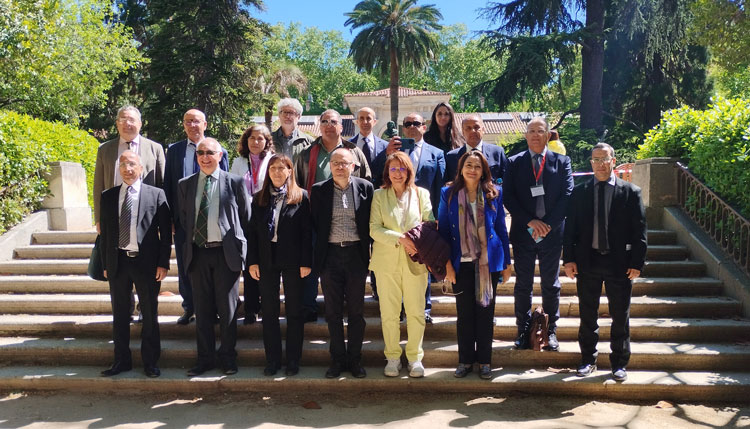Eduardo González
The Sumar Parliamentary Group has presented a non-law Proposal in which it demands the Government’s “immediate and unconditional” recognition of the Palestinian State, taking into account that “the perspective of global recognition by the European Union is very far from being possible.” be realized in the short term.”
The Non-Law Proposition, presented on April 12 for debate and approval in the Plenary Session of the Congress, warns that “the figures on the devastating effects of the Israeli military intervention against Gaza reach unknown and dramatic proportions,” with more than 30,000 civilians killed (of which more than 70 percent “are children and women”) and more than 70,000 injured. “It is thus confirmed that this military offensive has one of the highest civilian mortality rates compared to any of the war conflicts suffered after World War II,” the text continues.
The motion also denounces the death of 350 Palestinian health workers, more than 150 journalists and more than one hundred workers from humanitarian organizations, including UNRWA and including the seven workers from the humanitarian organization World Central Kitchen who died on April 2. Furthermore, between 50 and 61 percent of the buildings and infrastructure in Gaza have been destroyed after the incursion of the Israeli army and more than 1.7 million Gazans have been forced to move, “that is, 80 percent of the population of Gaza.”
In these circumstances, as denounced by the formation of Vice President Yolanda Díaz, “the intervention of the international community, especially in the European case and despite the constant requirements and twelve-point proposal of the High Representative for the foreign policy of the EU (Josep Borrell), shows signs of slowness and lack of expectations in the short and medium term.”
For all this, Sumar considers “it is essential that Spain, due to its historical relations with the area, its role in the Middle East and the credibility it has accumulated over decades, promotes a strategy that offers a political perspective for a way out of the situation that provides a response. to the humanitarian situation and allows the self-determination of the Palestinian people.”
“This proposal must be articulated around the immediate and unconditional recognition of the Palestinian State,” because “the two-state solution is the only one recognized by international law and the only one capable of guaranteeing peace and security in the area,” the motion continues. , which recalls that, currently, 136 countries recognize the Palestinian State, of which ten belong to the EU, and that the Israeli Government, in a decision taken by a large majority of its Parliament on February 21, 2024, has rejected the creation of a Palestinian state.
For all this, taking into account that the UN has demanded Israel’s withdrawal from the illegally occupied Palestinian territories as a whole and “the creation of a viable Palestinian State”, that “the prospect of global recognition by the European Union is very far from being able to be realized in the short term, as the situation demands”, and that “the perspective of waiting until the end of the war to hold an eventual Peace Conference for this recognition does not correspond to the needs of the situation at the current time”, Sumar urges the Government to “ratify its support for the UN resolutions that must lead to the recognition of the Palestinian State”, to reiterate its support for the resolutions that demand the withdrawal of Israel from the occupied territories” and to initiate “the procedure for immediate recognition of the Palestinian State by Spain.”
Pedro Sánchez and Albares
This past Thursday, the President of the Government, Pedro Sánchez, assured in Brussels, at the end of the extraordinary European Council, that he will inform the parliamentary groups “before” taking the step of recognizing the Palestinian State. Likewise, he stated that his recent round of contacts with several EU leaders (Norway, Ireland, Slovenia, Portugal, Malta and Luxembourg) to seek support for his initiative has been “very positive” and that, although the Executive’s intention is “to take that step when circumstances allow it”, he will continue “talking with other countries to take it jointly.”
On April 4, the Minister of Foreign Affairs, José Manuel Albares, assured in Brussels that the Council of Ministers, “which is the one who makes the decisions regarding Spain’s foreign policy,” will approve the recognition of the Palestinian State before July and that Pedro Sánchez will later explain “that decision” in the Congress.
This same Thursday, Albares intervened in an open ministerial debate of the United Nations Security Council to ask that Palestine be admitted as “another member” of the UN because it is “the only way to put an end to this loop of violence.” Algeria’s proposal for Palestine to be upgraded from an observer to a full member of the United Nations was supported by thirteen of the fifteen members of the Council, but was ultimately rejected due to the United States veto.






